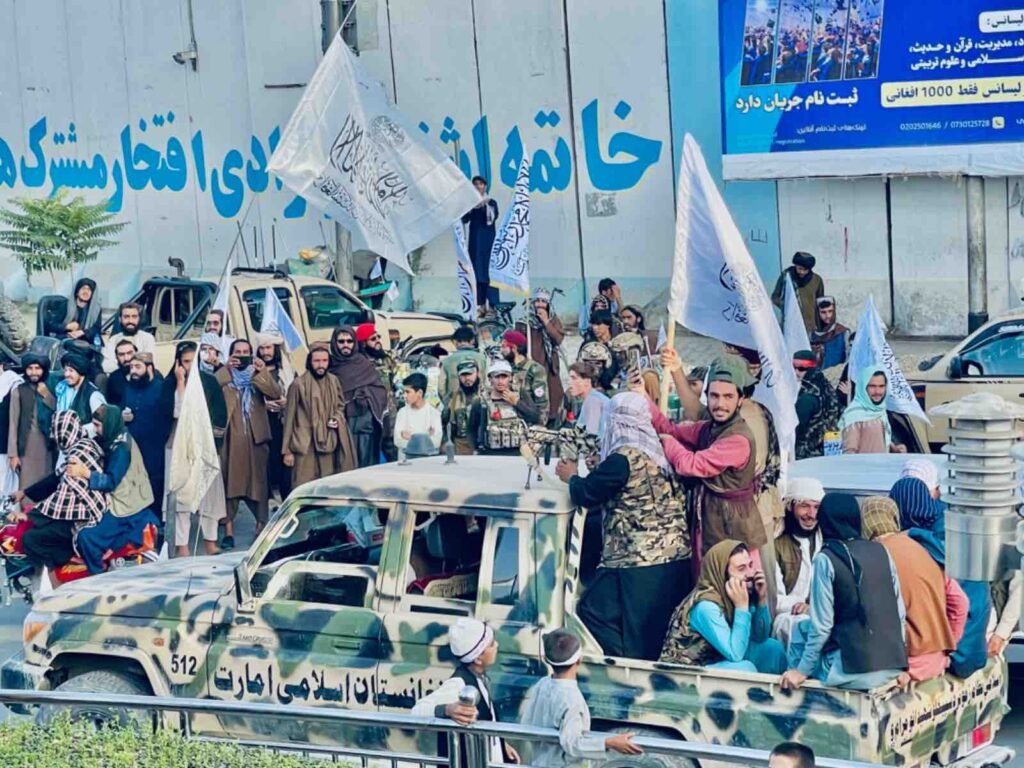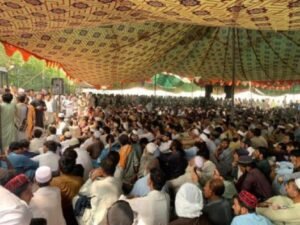The Taliban: Faith Fighters or Power Brokers?

In August 2023, in central Kabul, the Taliban commemorated their second anniversary of their victory. Photo by @AADIL for ADN.
By Ilhamuddin Afghan
The Taliban’s return to power in Afghanistan has reignited a fierce debate: are they devout defenders of Islam, or opportunists wielding religion for political gain?
Supporters see the Taliban as guardians of Islamic tradition. They point to their rise as resistance fighters against foreign occupation, framing their struggle as a righteous defense of both faith and Afghan soil. This narrative echoes past Islamic resistance movements, invoking jihad as a legitimate tool of self-preservation.
Furthermore, the Taliban’s strict interpretation of Sharia law resonates with some Afghans who value traditional religious practices. Their implementation of Sharia-based governance, with its rigid codes and punishments, is seen by some as a return to the principles that guided early Islamic societies. In this view, the Taliban’s efforts represent a genuine commitment to religious revival.
However, this portrayal is fiercely contested by many religious scholars and critics, both inside and outside Afghanistan. They argue that the Taliban’s interpretation of Islam is deeply flawed, straying from the faith’s core values of justice and compassion. The Taliban’s rule has been marred by documented human rights abuses, particularly against women and minorities, raising serious questions about their religious legitimacy.
Further complicating the picture are criticisms from within the Islamist spectrum. Radical groups like Hizb ut-Tahrir denounce the Taliban’s recent political alliances with nations historically perceived as hostile to Islam, such as Russia. This undermines the Taliban’s claim to be acting solely on religious conviction.
“Russia’s hostility towards Islam and Muslims is no different from that of America, Europe, and China. Our opposition to Russia is rooted in its colonial history and historical animosity towards Islam and Muslims,” the group said in a press release.
Critics further condemn the Taliban’s reliance on violence and coercion. While jihad has a place in Islamic theology, it comes with strict conditions, including the protection of civilians. The Taliban’s indiscriminate attacks and disregard for civilian life stand in stark contrast to these limitations.
Even religious authorities within Afghanistan question the Taliban’s approach. Groups like the Ahl al-Hadith, known as Wahhabis, argue that the Taliban’s interpretation of Islam deviates from true religious teachings.
The Taliban’s association with extremist groups like Daesh (Islamic State group) further muddies the waters. While there have been clashes between the two factions, their shared use of violence blurs the line between legitimate resistance and terrorism.
Ultimately, the question of the Taliban’s religious legitimacy remains unanswered. Are they true believers or simply power players manipulating religious ideology for their own ends? The answer likely lies somewhere in between. The Taliban’s legacy will be shaped by how their actions are perceived in the context of both Islamic teachings and Afghan history.
As Abdul Sattar, a pseudonym used to protect the identity of a religious scholar from Nooristan province stated: “If the Taliban had embodied the true Islam, they would have upheld justice and fairness, treating people with compassion and empathy.”
Sattar’s words highlight the bulk of the debate – do the Taliban’s actions reflect the faith they claim to represent, or do they represent a stark departure from its core values?
Ilhamuddin Afghan is a university professor based in Afghanistan.
Note: The contents of the article are of sole responsibility of the author. Afghan Diaspora Network will not be responsible for any inaccurate or incorrect statement in the articles.






